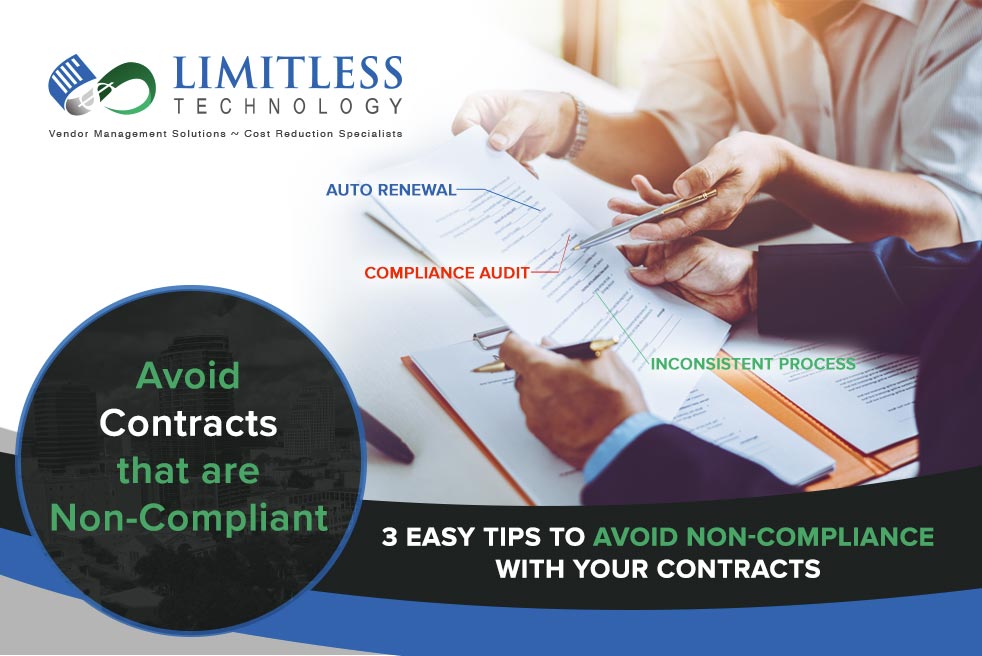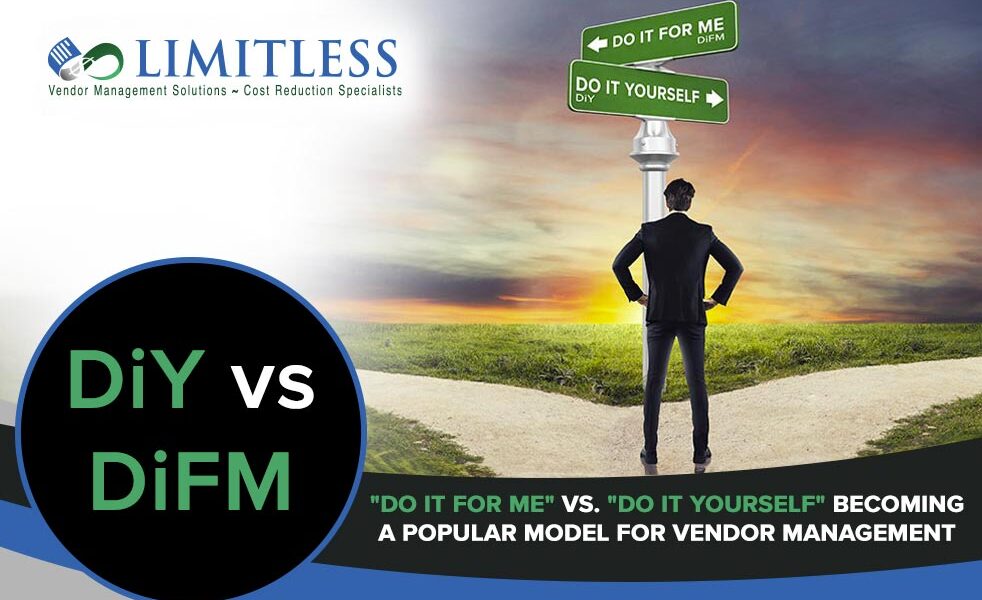Noncompliance occurs when one party in a contract does not fulfill his or her obligations. For example, if a construction company agrees to make repairs to your business’s facilities and fails to do so, this is noncompliance. If you are not worried about noncompliance with your contracts, you should be.
Here is why. Noncompliance can cost your company a lot of money. If your business isn’t managing its contracts effectively, it could be opening itself up to several risks, including (but not limited to):
- Losing money to unmanaged spending.
- Government audits and legal action.
- Complicating relationships with vendors.
According to some experts, as many as half of C-Level Executives surveyed stated that they are achieving less than 50% contract compliance. This is an alarming statistic when you think about the risks facing an organization with no focus in this area.
If your vendor management team is like many others or split across several departments, several common mistakes may be occurring. Maybe you’re entering contracts that have auto-renewal clauses, perhaps you’re not making sure that your suppliers are adhering to the agreement, as it was signed and, possibly, you’re not negotiating the best terms for your company.
Below are 3 easy tips that will make it easier for your team to improve its contract management program, and avoid noncompliance. If you implement these tips, you will lower risk, save money, and build better vendor relationships.
Tip #1: Don’t Enable Auto-Renewal of Contracts, or allow “Evergreen” clauses
It might seem tempting to just allow your contracts to auto-renew. Sounds much easier, right? Instead of renegotiating the contract each time, it can seem more convenient to have it renew on its own.
Often, companies lose money by allowing their contracts to renew automatically. Contracts that contain “evergreen” clauses typically require you to terminate the agreement within a certain amount of time before the contract ends. Sometimes, the timeframe can be anywhere between 30 – 90 days.
Here’s the thing… if you don’t give the vendor notice within that timeframe, your company is obligated to renew for another term, which may not be beneficial to your organization. This is why you should avoid contracts with evergreen clauses.
What if you were able to renegotiate the contract? What if you could get better pricing? Better delivery times? Better payment terms? Entering into an evergreen contract could open you up to the risk of limiting your flexibility.
Tip #2: Conduct Your Own Contract Compliance Audit
If you’re going to have an effective contract management program, you need to audit your vendors. Just like your vendors will want to make sure that you are abiding by the terms of your contract, you need to do the same.
Here’s a few tips:
Determine the Extent of the Audit
First, you need to figure out how extensive your audit will be. Will you audit the whole document, or are you only concerned by one element of the contract?
Determining the extent of your audit will keep you from wasting time because you will know exactly which parts to look at. Of course, if you’re going to audit the whole document, it’s a good idea to make sure that your vendor management organization has the time and resources to devote to this task.
Identify Your Objectives
After you figure out how extensive your audit will be, you must figure out what you’re trying to accomplish with your audit. What is your end goal is?
- Making processes more efficient.
- Recovering costs (from overpayments).
- Managing risk.
- Identifying fraudulent activity.
This is incredibly important. If you don’t know what you’re trying to get out of the audit, you won’t be as effective.
Work With Your Supplier
Auditing your suppliers isn’t a confrontational thing…it’s just meant to ensure that both sides are living up to the agreement.
It’s a good idea to develop a dispute resolution process that both you and your vendor can agree upon. There might be times when there are disagreements between both parties. Having a dispute resolution process that is already agreed upon will help you resolve these disagreements in a way that preserves the relationship.
Evaluate the Success
After performing the audit, take some time to figure out what went well and what didn’t. Were you able to accomplish your objectives? What should you look at in future audits?
Tip #3: Create a Consistent Process
One of the main keys to maintaining contract compliance is ensuring that there is a consistent contract review process in place. You want to make sure that each contract is handled in the same way.
Ideally, this process should be documented and easy to understand. There should be no question as to what the team members should do and how they should do it.
Come up with a workflow that each member of the team will perform. You can adjust as necessary, but it is important to have an established process that everyone follows.
About Limitless Technology
Limitless Technology, LLC has been managing complex indirect spend and vendor documentation since 2006 for some of the largest companies in the USA saving them millions in costs.
Through our Billing Optimization and Vendor Management Solutions proprietary platforms we utilize technology, processes, expertise, time, and resources to improve our client’s bottom-line.
Limitless Technology manages your vendors, so you can manage and grow your business.
For Additional Information Contact us at:
Phone: 407.330.4466




